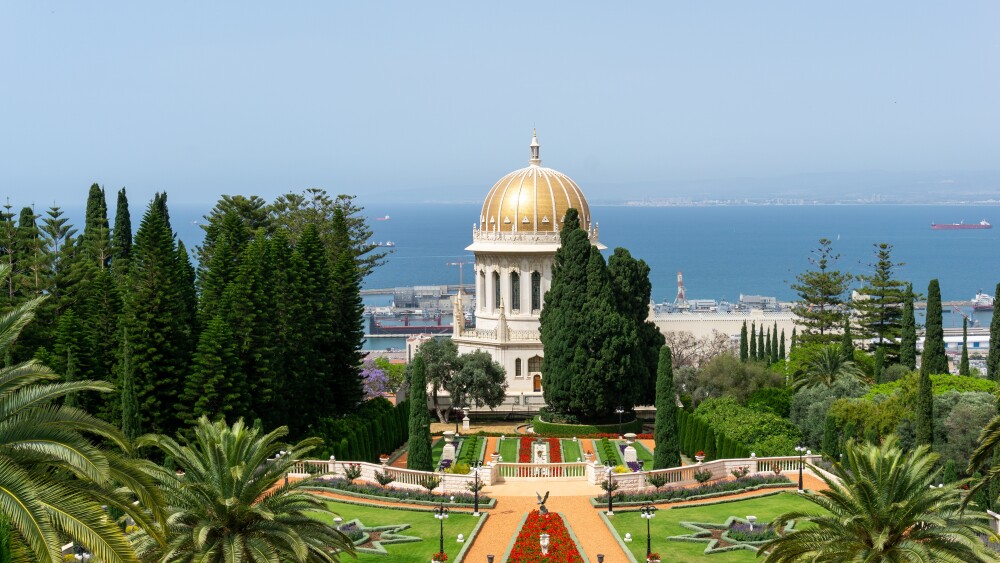As the war between Iran and Israel escalates, the existence of Iran’s Bahai community is under threat. Iranian Islamists portray the Bahai as Israeli spies, an accusation that disregards the fact that this religious community predates Israel’s founding by almost a century.
Bahais believe ... in a subsequent prophet who emerged in Iran, an assertion that strikes at the heart of Islam’s understanding of Muhammad and the Quran.
To comprehend Iran’s hostility toward the Bahai, a faith whose administrative center is in Haifa, it is necessary to understand why Iranian Islamists seek to destroy Israel. Ayatollah Ruhollah Khomeini’s desire to “liberate” Jerusalem stems from Iran’s rivalry with Saudi Arabia. Khomeini viewed Jerusalem as the First Qibla, the original direction of Muslim prayer. Early Muslims initially prayed facing Jerusalem. Following a subsequent command from the Prophet Muhammad, they began to pray facing Mecca. But since Iran’s ayatollahs believe they should lead the Islamic world, the notion of liberating Jerusalem emerged as a symbolic challenge to Mecca and to Saudi Arabia’s religious leadership of the Muslim world. Khomeini and the forces loyal to him would prefer to create a new Mecca in Jerusalem, under Iranian leadership.
Religious, Khomeini also despised the Bahai. Muslims believe that Muhammad was the “seal of the Prophets” who revealed the final revelation after recipients distorted earlier revelations. Bahais believe, however, in a subsequent prophet who emerged in Iran, an assertion that strikes at the heart of Islam’s understanding of Muhammad and the Quran.
As early as May 2, 1963, Khomeini claimed that the Bahai were agents of the Israelis. After the Islamist takeover in 1979, the regime destroyed all Bahai holy sites in Iran. A wave of killings of Bahai began in the 1980s and has now evolved into a campaign of persecution. Policies deliberately obstruct Bahai progress and development: The regime expels them from universities and destroys their cemeteries and other symbols of the community.
In fact, the Bahai faith has no clergy; it rejects militant jihad, and it champions gender equality. The modern Bahai faith promotes art and music, education, and science, with special emphasis on opportunities for girls. Bahai women do not wear headscarves, and they are allowed to sing in public. For these reasons and more, the Islamic Republic condemns the Bahai as apostates who have abandoned Islam. Islam traditionally punishes such “apostasy” with death.
Bahai face systematic oppression, with individuals disappearing, being arbitrarily detained or abducted, murdered, or given lengthy prison sentences merely for thinking differently.
The regime commits crimes against humanity against the Bahai in Iran on the basis of their collective religious identity. As the regime lashes out in anger, and perhaps even as its chief ideologues see their time running out, they may launch a widespread and systematic attack against the Bahai due to their own theology and simply out of spite. Bahai face systematic oppression, with individuals disappearing, being arbitrarily detained or abducted, murdered, or given lengthy prison sentences merely for thinking differently. The government perpetrates a form of extermination by deliberately creating unbearable living conditions, through confiscation of property and the denial of employment, targeting individuals solely for belonging to this community.
Perhaps most dangerous and threatening in the current situation is the false charge of espionage. A leading cleric, representative of thousands of similar Islamist voices, described the Bahai faith as an espionage organization and says the Bahai seek to overthrow the Islamic Republic of Iran.
If the Islamist rulers of Iran believe their crumbling totalitarian power is threatened, they may become even more murderous toward their own people. The Bahai have always been scapegoats for the Iranian regime; now, however, the threat to their existence has grown immensely.






